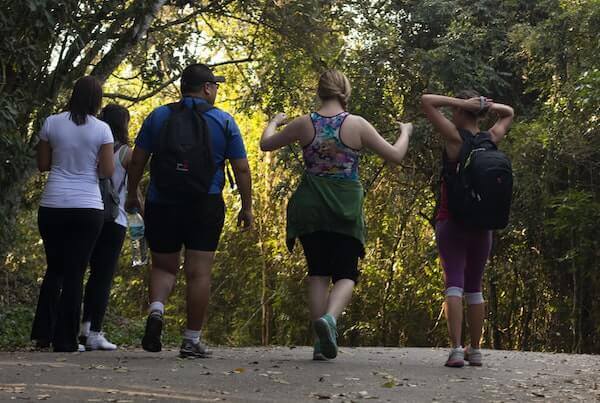
A recent systematic review and meta-analysis investigating the relationship between walking speed and the risk of type 2 diabetes has revealed intriguing findings, indicating that picking up the pace while walking might significantly reduce the likelihood of developing this prevalent metabolic condition.
The study published in British Journal of Sports Medicine, scrutinized data from ten cohort studies. These studies delved into how walking speed correlates with the risk of type 2 diabetes among adults.
The results unveiled a compelling trend: individuals who engaged in brisk or faster-paced walking exhibited a decreased risk of developing type 2 diabetes compared to those who strolled at a more manageable, more leisurely pace. The analysis showed that the risk reduction was notably apparent as walking speed intensified.
Compared to those walking at a relaxed pace of under 3.2 kilometres per hour, the risk of type 2 diabetes was 15% lower (95% CI 0.70 to 1.00) for average/normal walkers (3.2–4.8 km/hour), 24% lower (95% CI 0.65 to 0.87) for fairly brisk walkers (4.8–6.4 km/hour), and 39% lower (95% CI 0.49 to 0.73) for brisk/striding walkers (>6.4 km/hour). These findings suggest a graded decrease in risk as walking speed increases.
Interestingly, the analysis did not find a significant difference in risk reduction when considering the total volume of physical activity or time spent walking daily. However, a dose-response analysis hinted that the risk of type 2 diabetes notably declined at a walking speed of 4 km/h and above.
Dr Jayedi highlighted that while these results are promising, the certainty of evidence remains moderate to low due to the predominance of studies with a high risk of bias. Nonetheless, the study underscores the potential health benefits of picking up the pace during walks to mitigate the risk of type 2 diabetes.
This research sheds light on a simple yet effective way individuals can potentially lower their risk of developing type 2 diabetes by incorporating faster walking speeds into their daily routines. While more comprehensive and rigorous studies are needed to affirm these findings, this study provides an encouraging step toward understanding the impact of walking speed on metabolic health.
The research serves as a vital reminder of the significance of physical activity, specifically brisk walking, in potentially reducing the risk of type 2 diabetes.






